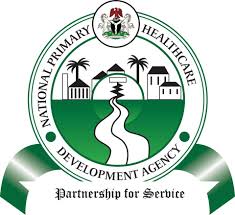By Iyemah David
The National Primary Health Care Development Agency, (NPHCDA), has said to Nigerians that there are no quick-fix ‘cures’ except to get vaccinated and avoid the riot of long COVID-19.
Executive Director of the NPHCDA, Dr Faisal Shuaib said this on Tuesday during the handover of four million, four hundred thousand (4,400,000) doses of Johnson & Johnson COVID-19 vaccines donated by the Government of Spain.
According to World Health Organisation (WHO), Long COVID is a condition characterised by long-term consequences persisting or appearing after the typical convalescence period of COVID-19.
It is also known as post-COVID-19 syndrome, post-COVID-19 condition, post-acute sequelae of COVID-19, or chronic COVID syndrome.
According to Shuaib, for those who feel they can easily recover from COVID-19 if contracted, yes this is possible but for some who get this virus, they may recover from the acute phase of the infection but still have long term side effects of this disease.
“Long COVID can affect nearly every organ system, with sequelae including respiratory system disorders, nervous system and neurocognitive disorders, mental health disorders, metabolic disorders, cardiovascular disorders, gastrointestinal disorders, musculoskeletal pain, and anemia.
“A wide range of symptoms are commonly reported, including fatigue, malaise, headaches, shortness of breath, anosmia, parosmia, muscle weakness, low fever and cognitive dysfunction,” he said.
The NPHCDA boss said that the functional impairment associated with long COVID has significant social, psychological and economic effect on individuals and the communities.
He said, in addition, management of this syndrome was likely to continue to be an additional burden on the already heavily strained healthcare systems.
He said that as May 24, 2022, 29,651,708 eligible persons have received the first dose of the COVID-19 vaccines, and this represents 23.4 per cent the country’s eligible population.
“14,179,966 persons have received the 2nd dose and 17,702,018 are fully vaccinated and represent 15.8% of our eligible population. 1,178,604 persons have received the booster dose,” he said.
Shuaib said that the donation came when it was most needed as the country were rapidly ramping up its full vaccination coverage.
“The single-dose regimen of the Johnson & Johnson vaccine will enable us to move rapidly towards achieving herd immunity,” he said.
The ED said that these figures show that the country were a far cry from its target of 70 per cent of its eligible population.
“However, these donations will help towards achieving our target.
“If we keep up with vaccination, the likely scenario is that even though the virus continues to evolve, the severity of the disease will reduce over time, as the immunity increases due to vaccination.
“But if majority of our eligible population in Nigeria and globally continue to remain unvaccinated, what we may see is that a more virulent and highly transmissible variant could emerge, sooner or later which would be worse than any variant seen,” he explained.
According to him, new estimates from the WHO, shows that the full death toll associated directly or indirectly with the COVID-19 pandemic which is described as excess mortality, between January 1, 2020 and December 31, 2021 globally was approximately 15 million (range 13.3 million to 16.6 million).
“This means that we lost about 15 million persons globally within two years as a result of the pandemic. This is heart-wrenching,” he said.
He disclosed that a few weeks back a country which had closed its borders and had refused to accept international assistance finally announced to the world that they were having about 200,000 cases of COVID-19 per day.
He said that striving to vaccinate 70 per cent of the eligible population of every country remains essential for bringing the pandemic under control and Nigeria is working hard to ensure its citizens has access to the lifesaving vaccines.
According to him, the NPHCDA will continue to work with all stakeholders, partners and communities to ensure an inclusive COVID-19 vaccination campaign in Nigeria.
He said to improve access, the agency has integrated COVID-19 vaccination with routine immunization and other Primary Health Care (PHC) services.
The NPHCDA commended the Government of Spain and the European Union for their support to Nigeria as they collectively work towards a world without COVID-19.




